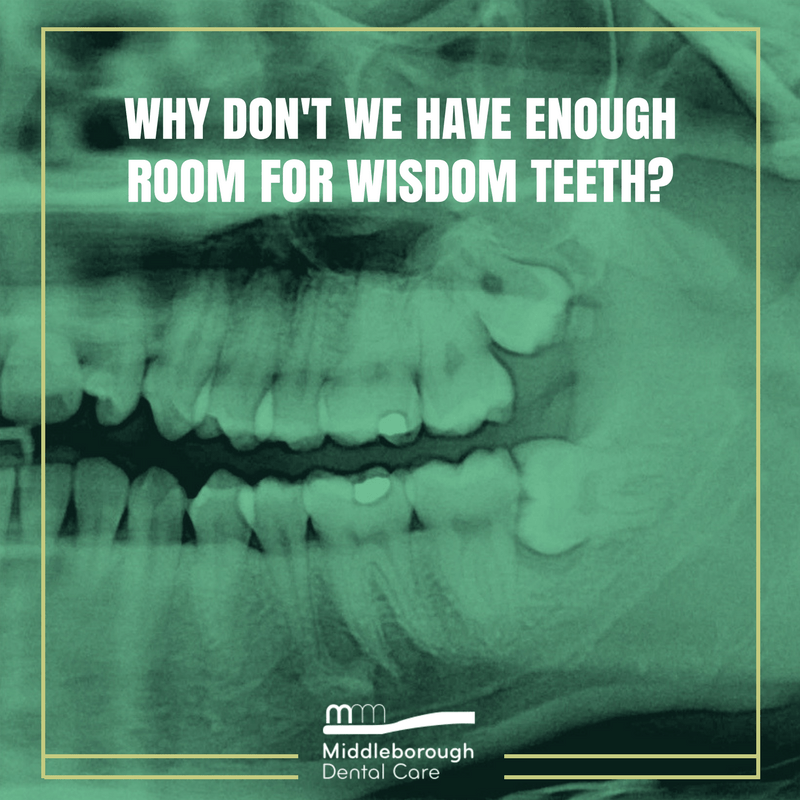
Worried about wisdom teeth? Here’s what you need to know
Everybody knows someone who’s had their wisdom teeth out, and other people who haven’t, so it’s only natural for teenagers to wonder “will I need my wisdom teeth removed?”.
Wisdom teeth are the molars (back teeth) that come through last, usually in the late teens or early twenties (ages 17 to 25).
Most people, although not everyone, has one in each back corner of their mouth. Some people only get two and some never have wisdom teeth appear at all.

Why don’t we have enough room for wisdom teeth?
Some people’s jaws have room for their wisdom teeth to come through with no issues, while others don’t. This isn’t due to evolution – which is why these additional teeth developed in our ancestors – but rather diet.
Our modern diets lack certain key nutrients, particularly vitamin K2, that allow the jaw to develop for longer. K2 helps get calcium into our bones.
Basically, depending on your childhood diet, your jaw might not develop enough to fit wisdom teeth.
Will I need my wisdom teeth removed?
Sometimes you can get a good idea whether there’s enough room for wisdom teeth through a simple self-examination in your mid-teens.
Locate the existing two molars on each side of your upper and lower jaw (by around age 12 everyone should have two molars – wisdom teeth are, therefore, the third molars) and feel behind the back ones.
If you can feel a flat pad of tissue back there, there’s a good chance there’s enough room for a wisdom tooth. It’s not necessarily going to be the same in all four spots, but often it is.
If the tissue is curving upwards, it’s more likely that you don’t have enough room for the wisdom teeth to come through in their correct alignment, however this is only a rough ‘test’, and x-rays closer to the time the wisdom teeth are due to appear will more accurately evaluate their presence and alignment.

Why would you recommend having them removed?
When there’s not enough room in the jaw for wisdom teeth, it can stop them coming through properly or they can come through at an angle.
If they’re leaning sideways, they might rub against your cheek, and if they push against the molars in front that might push several teeth closer together and affect your bite.
You may have heard the term ‘impacted’ to describe an issue with wisdom teeth coming through. This essentially refers to teeth that become ‘trapped’ in the soft tissue and/or jawbone or gums, causing pain.
Partial eruption allows an opening for bacteria to enter around the tooth and cause an infection, which results in pain, swelling, jaw stiffness, and general illness.
Partially erupted teeth are also more prone to tooth decay and gum disease, because their hard-to-reach location and awkward positioning makes brushing and flossing difficult.
Is there any alternative to removal?
If your wisdom teeth are likely to cause any issues for you, it’s best to have them removed – and the earlier the better.
Removal is easier in young people, when the roots are not yet fully developed and the bone is less dense. In older people, recovery and healing time tend to be longer.
However, we don’t always recommend immediate removal. In some circumstances, a wait-and-see approach might be our first option, but only with close monitoring.
Removing wisdom teeth is a very common procedure as it’s certainly preferable if there’s any risk of pain or more serious issues.
If you have any questions that haven’t been covered here, please let us know and we’ll be happy to answer them, and if you’re approaching wisdom-teeth age we can arrange an OPG full mouth x-ray on the spot to see what’s happening in your case.